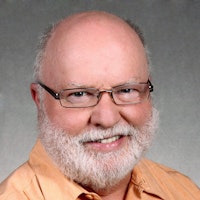The truly human is always experienced in vulnerability, in mutuality, in reciprocity… Vulnerability transforms you.
The truly human is always experienced in vulnerability, in mutuality, in reciprocity… Vulnerability transforms you.
Richard Rohr

The Truly Human
Topic: Interfaith Pathways
I think the truly human is always experienced in vulnerability, in mutuality, in reciprocity. When human beings try to deny their own vulnerability, even from themselves, when they cannot admit weakness, neediness, hurt, pain, suffering, sadness, they become very unhuman and not very attractive. They don’t change you; they don’t invite you. Vulnerability transforms you. You can’t be in the presence of a truly vulnerable, honestly vulnerable person and not be affected. I think that’s the way we are meant to be in the presence of one another.
Richard Rohr, OFM, born in 1943 in Kansas, is a renowned American Franciscan priest and celebrated writer on spirituality, presently based in Albuquerque, New Mexico. Ordained in the Roman Catholic Church in 1970, Rohr embarked on a spiritual journey that has since garnered widespread attention and respect. By 2011, PBS had recognized him as "one of the most popular spirituality authors and speakers in the world," a testament to his influential presence in contemporary spiritual discourse.
In his pursuit of spiritual growth and community building, Rohr has achieved noteworthy milestones. He attained his Master of Theology degree from the University of Dayton in 1970. The subsequent year saw him founding the New Jerusalem Community in Cincinnati, Ohio. But perhaps his most enduring legacy stems from establishing the Center for Action and Contemplation (CAC) in Albuquerque, New Mexico, in 1986. Here, he has diligently served as the founding director and academic dean of the Living School for Action and Contemplation. Rohr's teachings, embodied in the school's curriculum, revolve around seven themes explored deeply in his book, "Yes, And."
Rohr's contributions to Christian spirituality, while transformative for many, have occasionally faced scrutiny and opposition, especially from certain conservative Catholic factions. These groups have sometimes critiqued his interpretations and teachings as diverging from traditional Catholic orthodoxy. In this context, a defining moment in his career was his meeting with Pope Francis, who gave a heartfelt endorsement to Rohr's book, "The Universal Christ." This endorsement can be viewed as a significant vindication of Rohr's teachings. It not only bridged potential theological divides but also highlighted Rohr's influential and valued position within the broader spectrum of Christian thought and practice.
Living In Deep Time
Tippett, Krista. “Richard Rohr - Living in Deep Time.” The On Being Project, The On Being Project, 13 Apr. 2017, onbeing.org/programs/richard-rohr-living-in-deep-time-apr2017/.

Richard Rohr
Theme: Interfaith Dialogue

About This Richard Rohr Quotation [Commentary]
Richard Rohr’s quotation, “The truly human is always experienced in vulnerability, in mutuality, in reciprocity… Vulnerability transforms you,” invites us to reconsider our understanding of what it means to be authentically human. Rohr posits that it is through embracing our vulnerabilities—our weaknesses, pain, and emotional needs—that we access the fullness of our humanity. This perspective challenges the cultural norm that equates strength with invulnerability. Instead, Rohr argues that true strength lies in our capacity to be vulnerable, to engage with others in relationships characterized by mutual respect and reciprocity. It is in this openness to one another that we find the potential for genuine personal and communal transformation.
In the context of interfaith dialogue, Rohr’s insights on vulnerability become particularly meaningful. Interfaith dialogue often involves stepping into spaces where differences in belief, tradition, and identity are pronounced. Approaching these conversations with a spirit of vulnerability—being open about our fears, doubts, and hopes—can create a shared ground where mutual understanding is possible. When individuals from diverse backgrounds come together with a willingness to be vulnerable, they move beyond superficial exchanges and enter into deeper, more meaningful interactions. This approach allows for a reciprocity that can dissolve barriers, fostering an environment where transformation is possible for all participants.
Rohr’s emphasis on vulnerability as transformative is a reminder that the goal of interfaith engagement is not to persuade or to conquer, but to be fully present with one another in our shared humanity. By embracing our vulnerabilities, we allow ourselves to be shaped by the experiences of others, opening the door to profound personal and communal growth. This perspective aligns with the essence of interfaith dialogue, where the aim is not to diminish differences but to engage with them in a way that enriches our understanding of both ourselves and others. Through this mutual exchange, participants can experience the deep transformation that Rohr speaks of, discovering in each other reflections of the divine that transcend the boundaries of individual faith traditions.
Living In Deep Time, Krista Tippett with Richard Rohr [Excerpt]
FR. ROHR: The ‘truly human’ is always experienced in vulnerability, in mutuality, in reciprocity. Vulnerability transforms you. You can’t be in the presence of a truly vulnerable honestly vulnerable person and not be affected. I think that’s the way we were meant to be in the presence of one another.
Joseph Campbell is someone who, at another era in American life, kind of gave voice to this. And you quote from him, and there is this beautiful quote from him, about that mythological trajectory.
But Jesus would be a little beyond that when he says, “Take up your cross,” which is not so attractive. But he’s much more leading us into the second half of life.
I gave a retreat two weekends ago in Santa Fe for 40 millennials, and what some of them have done already, for the poor in Africa, starting not-for-profits that care about this cause or that cause. And they conversed with me for a full weekend with some of the most mature, grounded, humble, responsive understanding to what I was saying, just proving the proof of what you just said. Some of the young people today feel like old souls. And some of my generation feel like old fools.
But a phrase was used in medieval Catholic spirituality was “the eternal now.” “When time comes to its fullness,” is the biblical phrase. I’m sure you’ve been told that in the Greek, in the New Testament, there’s two words for time. Chronos is chronological time, time as duration, one moment after another, and that’s what most of us think of as time.
But there was another word in Greek, kairos. And kairos was deep time. It was when you have those moments where you say, “Oh my god, this is it. I get it,” or, “This is as perfect as it can be,” or, “It doesn’t get any better than this,” or, “This moment is summing up the last five years of my life,” things like that where time comes to a fullness, and the dots connect, when we can learn how to more easily go back to those kind of moments or to live in that kind of space.
Now, I think that’s what the tradition means by the word “contemplation,” that to be a contemplative is to learn to trust deep time and to learn how to rest there and not be wrapped up in chronological time…. So already, the desert fathers and mothers discovered this word “contemplation” because I believe they found the word that most believers use, the word “prayer,” to be so trivialized, so cheapened by misuse. Prayer was sort of a functional thing you did to make announcements to God or tell God things, which God already knew, of course. And they created another word to give us access to this deep time, and that word that kept recurring throughout the 2,000-year history of Christianity was the contemplative mind. It’s a different form of consciousness. It’s a different form of time.
Let me add one thing. We used to, in Latin, use this phrase sub specie aeternitatis, and the old professors used to say, “Sub specie aeternitatis.” And what it means—“in the light of eternity.” In the light of eternity, this thing that you’re so worried about right now—is it really going to mean anything on your deathbed? [laughs] And for some reason, that had the power to relativize the things that a young man would get so impassioned about, positively or negatively. And those were various ways of directing us toward deep time.
MS. TIPPETT: There’s a question—I think this may be on your website—so let me start this way. I often come to this point in a conversation as we’re ending and will ask this huge, unanswerable question about just where somebody would start, about how your sense of what it means to be human has changed, has evolved, or is evolving. It seems to me that—you said right at the beginning of our conversation that a sense of God is all wrapped up with what it means to be human. There’s this question on your website, and I kind of feel like it’s connected to this, but I’d like for you to think, to reflect on it, what it means, in any case. “What if changing our perception of God has the potential to change everything?”
FR. ROHR: The Latin poet Terence is supposed to have said, “Nothing truly human is abhorrent to me.” I think the truly human is always experienced in vulnerability, in mutuality, in reciprocity. When human beings try to deny their own vulnerability, even from themselves, when they cannot admit weakness, neediness, hurt, pain, suffering, sadness, they become very unhuman and not very attractive. They don’t change you; they don’t invite you. I think that’s why Brené Brown, perhaps you’ve interviewed her…
MS. TIPPETT: Yes, I have.
FR. ROHR: …why her work is having such influence. Because like few other people, she has brought this central, for me, as a Christian, central, divine, gospel notion of vulnerability to really begin to make sense to a lot of people. So that’s why I’m anxious to present the vulnerable God, which, for a Christian, was supposed to have been imaged on the cross. But again, we made it into a transaction. Transaction isn’t vulnerability anymore, really. Vulnerability transforms you. You can’t be in the presence of a truly vulnerable, honestly vulnerable person and not be affected. I think that’s the way we are meant to be in the presence of one another.
[music: “Stars Pt. 2” by Lowercase Noises]
MS. TIPPETT: Richard Rohr is a Franciscan writer and teacher, and founder of the Center for Action and Contemplation in Albuquerque, NM. His books include Falling Upward: A Spirituality for the Two Halves of Life, and most recently, Divine Dance: The Trinity and Your Transformation.
Resources
Related Quotes
Copyright © 2017 – 2026 LuminaryQuotes.com About Us